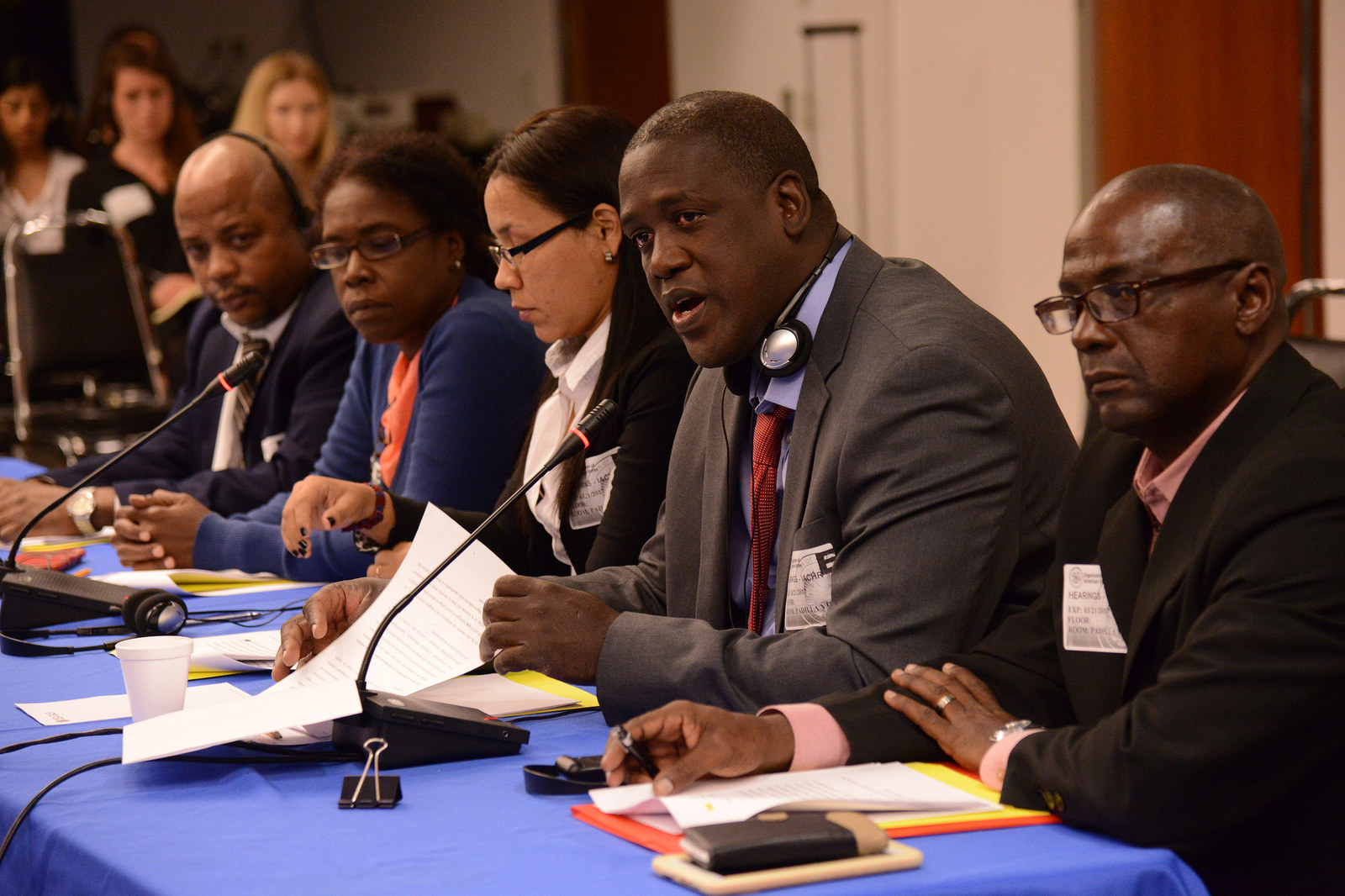Independent Cuban Activists Inform the Inter-American Commission on Afro-Cubans’ Rights Situation
Washington, D.C., March 21, 2017: Members of independent Cuban civil society reported on the human rights situation of Afro-descendant Cubans in a public hearing before the Inter-American Commission on Human […]

Washington, D.C., March 21, 2017: Members of independent Cuban civil society reported on the human rights situation of Afro-descendant Cubans in a public hearing before the Inter-American Commission on Human Rights. No representative of the Cuban government attended the hearing. Commissioner Esmeralda Arosemena de Troitiño, Rapporteur for Cuba, lamented the state’s absence and reaffirmed that the Commission continues to invite Cuba to resume participation in its activities.
Juan Antonio Madrazo of the Citizens’ Committee for Racial Integration (CIR) opened civil society’s remarks and noted that the hearing was being held on an important day, March 21, International Day for the Elimination of Racial Discrimination. Madrazo testified that the civil society delegation came before the Commission to “contribute to ensuring our society is free from racial discrimination and racism.” He added that challenges remain to reach such a goal, telling the Commissioners that “the Cuban state has assumed international human rights obligations and has proclaimed its commitment to fight discrimination and racism, but it has yet to fulfill a single one of these obligations.”
Marthadela Tamayo, another CIR member, told the Commission of the growing social and economic marginalization of Afro-Cubans, exemplified in the informal settlements in Havana populated by internal migrants from the eastern part of the country. These majority Afro-Cuban neighborhoods, Tamayo explained, suffer from high levels of poverty with acute effects on the women who live there, who often work long hours in the informal economy selling household and other items and rarely earn incomes that sufficiently cover their families’ basic needs.
Maricel Nápoles presented the findings of six reports produced by civil society members on racial disparities in the Cuban labor market. The reports illustrated several aspects of a Cuban economy that increasingly leaves Afro-Cubans behind. According to these studies, Afro-Cubans have fewer entrepreneurial opportunities and lower participation in lucrative sectors of the private economy, while many are trapped in intergenerational cycles of poverty performing the worst-paid, most socially-stigmatized jobs.
Fernando Palacio of the Center for Research, Leadership and Development (CELIDE) told the Commission of violations of Afro-Cubans’ rights to free expression and assembly, citing several recent examples of abuses by Cuban authorities against Afro-Cuban activists and organizations. Jorge Amado, an independent journalist based in Santiago, recounted his experience of arbitrary detention, threats, and confiscation of property in retaliation for his reporting work.
Following civil society’s presentation, Commissioner Esmeralda Arosemena de Troitiño expressed her concern regarding the violations of Afro-Cubans’ rights to no discrimination in employment and inquired about existing domestic laws or international obligations the Cuban state had. She also expressed concern about the lack of information gathered on Afro-Cubans, especially on vulnerable populations like children and adolescents.
Commissioner Edison Lanza, Special Rapporteur for Freedom of Expression, thanked the petitioners for their presentation and acknowledged that the Commission was examining several domestic Cuban laws that have been used to silence human rights defenders. He also asked the petitioners to provide additional information about Afro-descendants’ access to the internet and their participation in private and state media.
Commissioner Margarette May Macaulay, Rapporteur for Persons of African Descent and against Racial Discrimination, recounted her first visit to Cuba, where she noticed that the only Afro-Cubans at her hotel “were the people who were washing the floor.” She said she could not understand how the Cuban government could deny that racial discrimination exists in the country, “because it is apparent. It is in your face,” adding that the issue “has to be dealt with.”
The civil society delegation made several recommendations to the Commission. The petitioners asked the Commission to publicly denounce violations of Afro-Cubans’ rights, to request that the Cuban government assume its international obligations to protect Afro-Cubans from discrimination, and to request that the Cuban government implement programs to stop the spread of stereotypes and racial profiling and to increase opportunities for Afro-Cubans.
Photo Credits by: Daniel Cima/CIDH, shared and unaltered under creative commons license CC BY 2.0. Can be accessed through its source of origin here.
For video of the hearing, follow this link.

